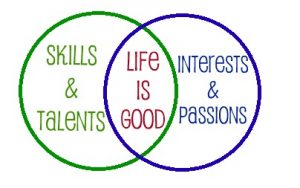by Monique Valcour
Critically important to performance and well-being, meaning is what makes people thrive. And conversely, a lack of it undermines people’s ability to function on many levels, from job performance to mental and physical health. For example, people who self-report that they are missing a sense of meaning in their lives are far more likely to exhibit the chronic pro-inflammatory stress response that is associated with life-threatening diseases like heart disease and some cancers.
But how many people truly experience their work as meaningful? From my experience conducting research, teaching, and speaking in a number of countries over the last 15 years, I can attest that large numbers of people do not. Across all manner of occupations, from gas station attendants toinvestment bankers, surveys reveal the numbers of people failing to find meaning in what they do.
So what do you do if you’re not in a setting where meaning is obvious — because your organization, for example, exists to provide life-saving technology or to raise people out of poverty? What if you work in place where management is unaware or unconcerned that it could do more to infuse the daily grind with a higher sense of purpose?
You learn to make your work more meaningful yourself. While it helps enormously to have conditions in place that facilitate work meaning (like autonomy in deciding how you do your work), it’s important to realize that meaning is ultimately something you create on your own. Indeed, even in jobs that may look dismal from the outside, there are always steps you can take to build the kind of meaning that will make you feel better and work better.
I saw this firsthand when I was a PhD student, in the call center of a large telecommunications company. As part of the research for my dissertation, I was there interviewing and observing customer service representatives while they worked. The pace of work was relentless: as soon as a worker completed a call and hung up the phone, another call would automatically be directed to his or her extension. Every detail of representatives’ work was measured and recorded: the number of rings it took them to answer each call; the number of seconds they placed each call on hold; the amount of time they spent resolving each call, etc., as well as daily totals of calls handled and sales made. Supervisors monitored the resulting data in a room that resembled the deck of a starship from science fiction films, with an array of lights that identified representatives who were “out of adherence” with the standards set for the aforementioned metrics. What’s more, supervisors could listen in on representatives’ calls without their knowledge at any time in order to monitor their performance. If you failed to make a sales pitch on a call that your supervisor was monitoring, you’d be reprimanded. All in all, the work conditions were prime for high stress and low meaning.
Yet there were some employees who experienced their work as meaningful. Joan, a 24-year-veteran of the call center, told me, “I really enjoy my work.” She explained, “I am a customer serviceprofessional. [Joan’s emphasis.] When customers call, it’s often because they have a problem that is frustrating to them. I know how to solve every request or problem customers might call with, and I know how to do it in a way that makes them feel good about their call. I resolve the problem so it’s no longer stressful for them.” The skill mastery she described and demonstrated provided her with meaning, as did the way in which she incorporated this mastery into her identity as a helping professional. Knowing that she was capable of reliably producing a result that she cared about amplified Joan’s experience of her work as meaningful. In other words, Joan’s recipe for work meaning was self-efficacy mixed with concordance with her personal values, seasoned with connection to and feedback from the beneficiaries of her work.
Sitting by her side with a headset that enabled me to listen in on her calls, I witnessed how Joan systematically built an authentic connection from the first few seconds of her interaction with each caller. “I hear what you’re saying, and I know how frustrating this is,” she assured her customers. “I understand the issue. I promise that I will help you solve this. I’m so glad I could help you today.” Customers responded positively to her competence, compassion, and reassurance, thereby affirming her sense of mastery and boosting her self-confidence and pleasure in work.
Joan’s example provides a lesson that everyone can use to make their work more meaningful, regardless of company, industry, or occupation. The key is to link your personal values and motivations to the work you perform. To do this, pay close attention to the elements of your work that you find energizing and fulfilling, and then find ways to incorporate them systematically into how you perform your work. Look for opportunities to make an authentic connection with the people who benefit from your work. Invest some energy in developing positive relationships with others who contribute to the same work results you care about and find energizing.n her work. Joan’s way of working—and of thinking about her work—created a self-reinforcing cycle of performance, meaning, and positive emotion.
Since you have the ability to determine how you think about and respond to the conditions you experience, you do have control over the meaning you derive from work. So yes, as you interact with hiring managers and supervisors, keep making it clear that you want meaningful work. But at the same time, do what you can to make the work meaningful.
